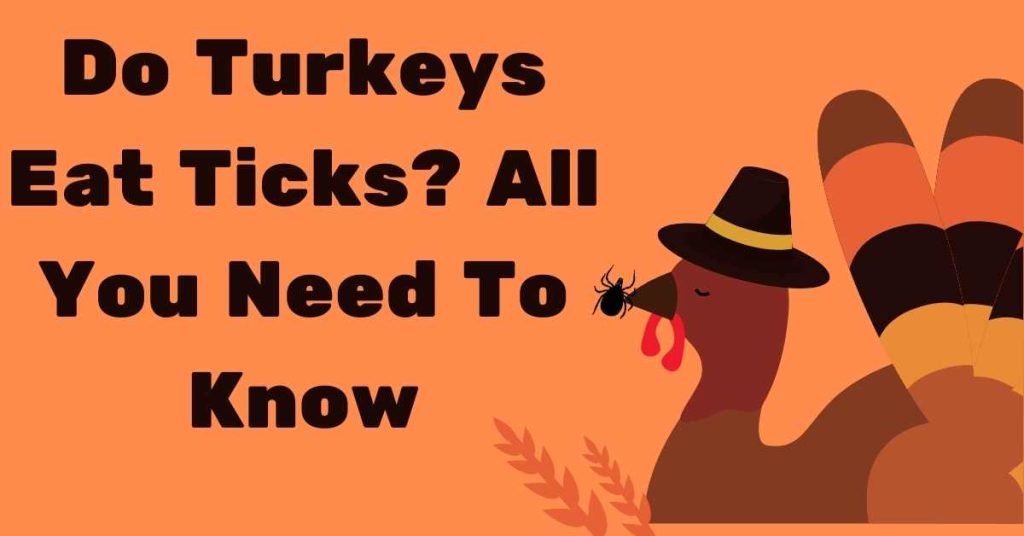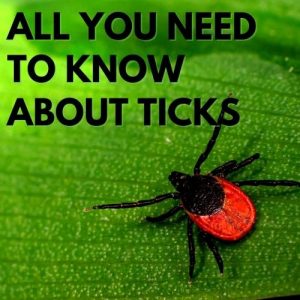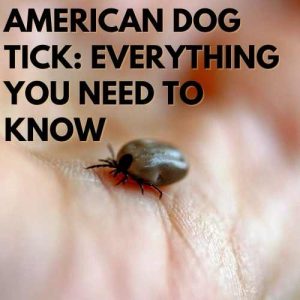
Yes, Turkeys eat ticks. An adult turkey is one of the best tick-eaters that it can eat nearly 200 or more ticks a day. Wild Turkeys in the forest floors, swamp regions, and grasslands are the best natural pest controllers. Domesticating Turkeys is one of the best ways to keep the ticks in control. But it is more significant to know more about the turkey-tick relations, effectiveness of tick elimination, etc before proceeding with your domestication idea.
How Dangerous Are Ticks To Humans?
Not all tick species are dangerous. Some prominent ticks can be vectors of life-threatening diseases to humans and animals.
Ticks are parasites that feed on blood. They are disease-causing insects with tiny hard heads and oval-shaped bodies. They are typically flat, brown, oval-shaped, and small and measure only a few millimeters in length. Ticks mostly live in woody, and brushy areas, clinging to shrubs and grasses, and they crawl on animals’ hair or skin when they move past and brush against it. You can find a large population and species of ticks in the USA, UK, Europe, and other western countries.
Most prominent diseases carried by ticks include:
- Lyme Disease
- Tularemia
- Anaplasmosis
Diseases transmitted by ticks to humans may cause symptoms as mild as a localized rash to as severe as joint infections, cardiac distress, and even death if left untreated.
Ticks pose a genuine problem to pets, livestock, and local wildlife. Animals become anemic if they are hosted by large number of ticks. If left untreated, anemia can cause lethargy, weight loss, organ failure, and death.
Best Animal For Tick Control
Biocontrol is the correct method to control the tick population in one place. Meaning, we use one organism to reduce the spread of another organism. In that sense, Using natural tick predators on our property helps us keep the tick population in control.
Some animals that help humans control the tick population are frogs, lizards, squirrels, opossums, some birds, ants, and fire ants. In this list, opossums are the best tick hunters that play a vital role in controlling the tick population. They eat almost 5000 ticks per season – a considerable part in tick destruction. But we cannot raise opossums on our farm. Do you know Turkeys are one of the best predators of ticks that is safe and you can possibly grow them in your farm.
Turkeys And Ticks:
How to raise turkeys on our farm to control the tick population?
Raising turkeys on your farm is not a complicated process. They need some extra care than chickens on your farm. These birds spend most of their time hunting, pecking, scratching, and foraging for food. Once you start to have them in the yard, you will love them. They eat some foods like snails, fish, and lizards. They eat grains, nuts, fruits, insects, and vegetables too.
Do turkeys carry ticks?
Yes! They may carry ticks sometimes. But it is not much harmful to humans or other domestic organisms like dogs, cats, cattle, etc. A research found that turkeys eat almost all ticks – in their larval and nymph stages. They also remove a maximum number of ticks from their body during self-cleaning. So, it is hard for the ticks to escape turkeys.
When we raise turkeys on our farm for tick control, proper vaccination, biosecurity against outside contamination, management practices, and good hygiene are essential. Using antibiotics helps us treat and control diseases in turkeys and improve their overall health.
Do Wild Turkeys Eat Ticks?
Yes! They do. You can find wild turkeys in the suburban areas, grasslands, shrublands, etc. more often eating ticks. The presence of wild turkey is a threat to the ticks population. But you might be amazed if you know which type of turkey eat most ticks? If that i your question, here is the fact!
Which type of turkey eat most ticks? – Domestic or wild turkey:
Generally, domestic turkeys do not bother ticks as they have more options to eat other than ticks. They will fill their stomach with grasses, sweet corn, tomatoes, summer squash, lettuce, etc. Thus, it is obvious that wild turkeys are the potential predators of ticks compared to domestic turkeys.
Domesticated Turkeys and all the five subspecies of the Wild Turkeys eat ticks. Wild Turkeys will consume Ticks when they find them. They are not active hunters but they eat ticks on the ground, in the grass, in low vegetation, and even on their own bodies during self-grooming. Even though these birds are tick hosts, they tend to eliminate more ticks than they spread.
How Many Ticks Does Turkey Eat In A Day?
Turkeys have sharp eyesight and acute hearing, making them talented tick gobblers. A fully grown turkey can consume 200 or more ticks per day. A turkey family, including a female turkey and her two generations along with her mate, can consume around 3800 ticks per day.
Can Turkeys acquire Lyme Disease After Eating Ticks?
Lyme disease is the most threatening tick disease spread to humans by infected ticks. Blacklegged or deer ticks act as vectors of Lyme disease in humans and animals.
Turkeys do not get Lyme disease from eating ticks. The ticks have to be attached to the hosts for more than 36 hours to transmit the disease. There is no possibility for this to happen after the ticks have been killed and eaten by the Turkeys.
Other Birds That Eat Ticks
Chicken:
Chickens eat ticks. They will be able to consume 80 ticks per hour. Chickens will help control the ticks in the backyard. Chickens have been discovered as natural predators of ticks by a study published in 1991. They consumed around 3 – 330 little critters in a single session.
Ducks:
Ticks are fond of moisture, and the Ducks are the most appropriate choice in wet and muddy areas. Though ducks cannot completely eat all the ticks in an area, they can significantly keep down the tick numbers. They are beneficial to the farmers.
Guineafowl:
Farmers use guineafowls as a natural tick repellent. Guinea fowl can eat as many as 1000 ticks per day.
Cattle Egret:
The cattle egret is a bird species that lives in grasslands and cattle pastures in many regions. It removes and eats ticks and flies from the body of animals. Thus, these species do their part in controlling the tick population. These birds ride on cattle backs to pick ticks and eat.
They have a diverse diet chart that depends on the habitat. Generally, these birds are insectivores, and their favorite foods are grasshoppers, locusts, and crickets. Ticks are also on their diet chart but only in small numbers. Some other prey of cattle egrets include earthworms, spiders, crayfish, mollusks, tadpoles, frogs, snakes, lizards, rats, fish, and birds.
Partridge:
Partridges look small, plump, and cute. You can find these ground-dwelling game birds throughout the United States and near water sources. They eat ticks and contribute a remarkable portion to tick control. The thick bristles on their tongues act as a brush-like tool for catching insects and ticks. They can pick and consume all types of ticks, even under leaves and grasses. These birds help keep the population of ticks in control by taking ticks as food.
Roadrunner:
Roadrunners belong to the cuckoo family with the native of North America and Mexico. They eat ticks occasionally. So this behavior will not affect the presence of ticks in the environment. These birds get ticks on their feathers and body when they hunt food sources like lizards, mice, insects, snakes, etc.
Their favorite foods: black widow spiders, millipedes, centipedes, crickets, grasshoppers, beetles, caterpillars, snails, mealworms, cockroaches, tarantulas, mosquitos, and dragonflies.
Woodpeckers:
Woodpeckers can naturally eat more ticks. They do this with their long and sticky tongues. The Woodpecker population has a vital role in controlling Lyme disease around the world. Some other favorite foods of woodpeckers: Ants, beetles, termites, spiders, caterpillars, bird eggs, other arthropods, small rodents, nestlings, fruit, lizards, sap, and nuts.
Oxpecker:
An oxpecker is a bird that feeds on ticks and commonly lives in Africa, Asia, and Australia. They often sit on large animals like giraffes, zebras, buffalo, and rhinos. Then they start eating ticks and lice from their body. These birds use their sharp beaks to remove pests from an animal’s skin. Usually, these birds live in woodlands or grasslands and help animals keep their body healthy and clean. They also eat flies, maggots, and all other kinds of larvae from their host body.
Do Quail Eat Ticks?
- Quails usually forage on the ground and eat what they find. Many people and various communities, especially farmers use quail for tick control in their farms. They can naturally eat more ticks and control tick infestation. Generally, quails are ground birds that dig around in the ground to find food. They consume ticks when they get them from the ground.
- Like any other animal, quails also get ticks. But they do not have proper immunity to tick bites. So sometimes, these ticks bite may create harmful effects on the overall health of quail. Once you find any tick infestation on your farm quail, ask for medical support. Otherwise, those ticks may start latching onto the quail’s skin.
- We know that deer ticks are the prime cause of Lyme disease. In some areas, people use quail to control Lyme disease.
How many quails do we need to control ticks in a particular place?
It entirely depends on the area of the place and the severity of the tick infestation. Quails eat all the ticks effectively wherever you allow them to roam freely. Setting them free in the backyard is the best idea to control the ticks population there. Around ten quails are enough for controlling ticks in an area of 1 acre.
Can quails get Lyme disease by eating ticks?
No! They can not get Lyme disease from eating ticks. They receive this disease only when the microbes that cause Lyme disease enter their bloodstream. When quails eat ticks, they will get digested, and there is no direct contact with the bloodstream.
Final Thoughts
Turkeys have proved to be effective in controlling the tick population. So, growing or domesticating some turkeys is best if you live in a tick-infested area. But never forget to follow the precautionary measures advised by the government to prevent tick infections. Turkey treatment might be an additional way to prevent ticks but being precautionary is the basic thing that needs to be followed to prevent tick infections.
FAQ
Q1. Do turkeys transmit ticks?
Wild turkeys do not spread deadly ticks. A recent study shows that turkeys get rid of as many ticks as they carry. The reason? Turkeys eat ticks.
Q2. Which animal eats the ticks the most?
Opossums are one of the top predators of ticks and kill more than 90 percent of the ticks they encounter. Opossums are good at removing ticks, and they can eat up to 5,000 ticks per season.
Q3. What kills ticks naturally?
Eucalyptus and Neem oil can kill ticks effectively. Just combine 4 ounces of purified water into a spray bottle and 30 drops of your carrier oil of choice. Shake well and spray anywhere you want to kill ticks.



